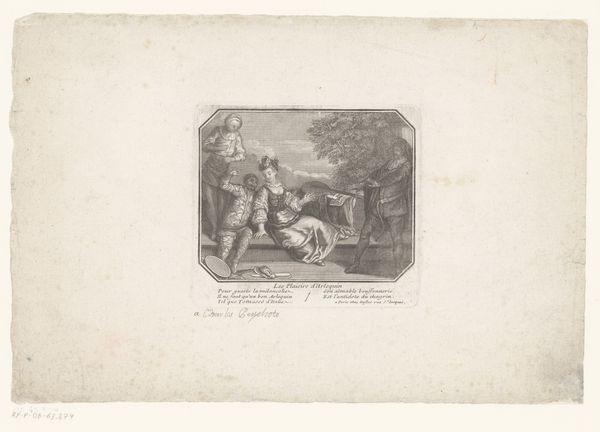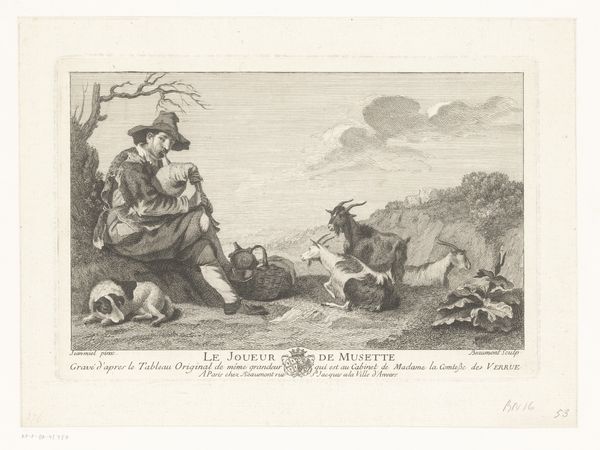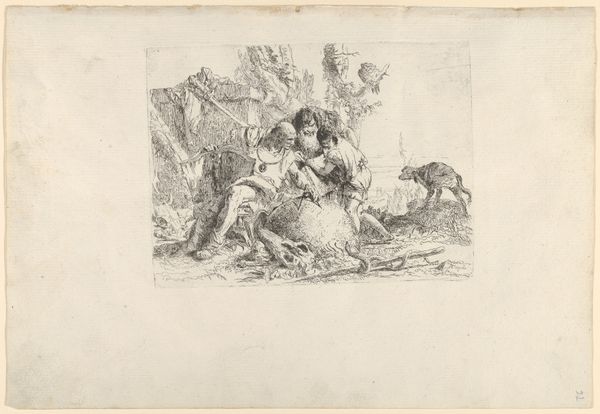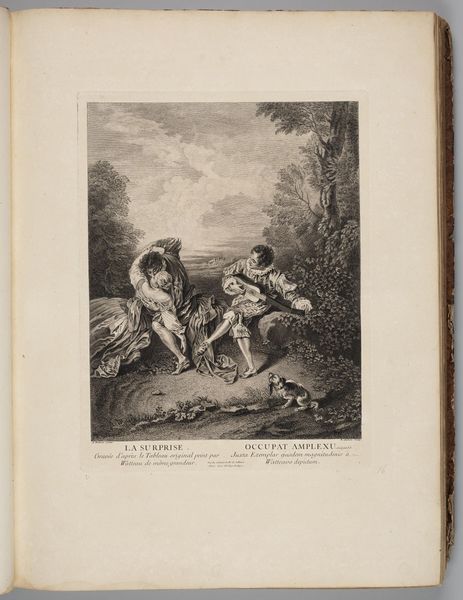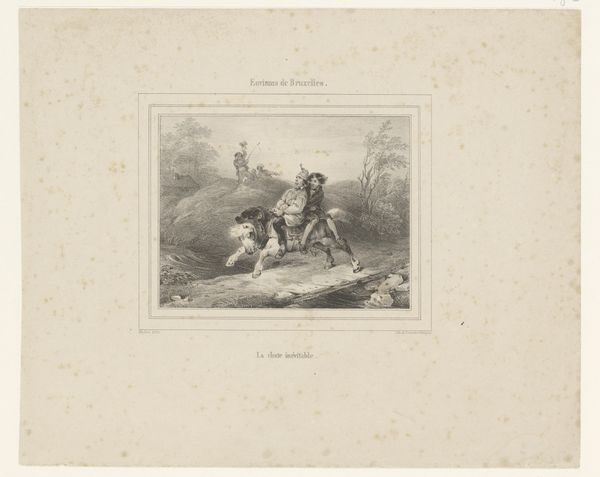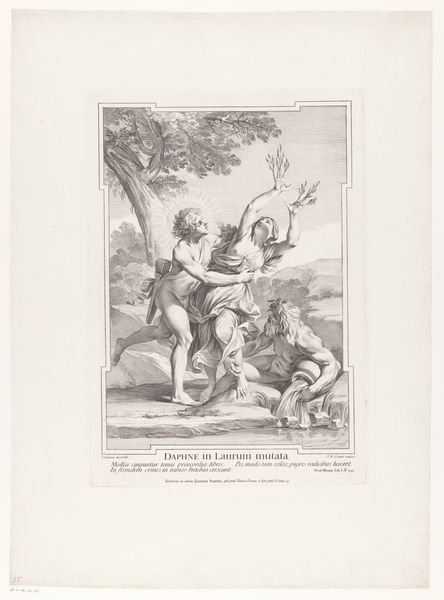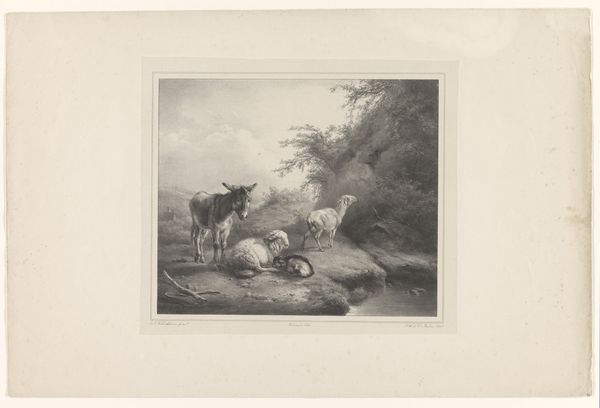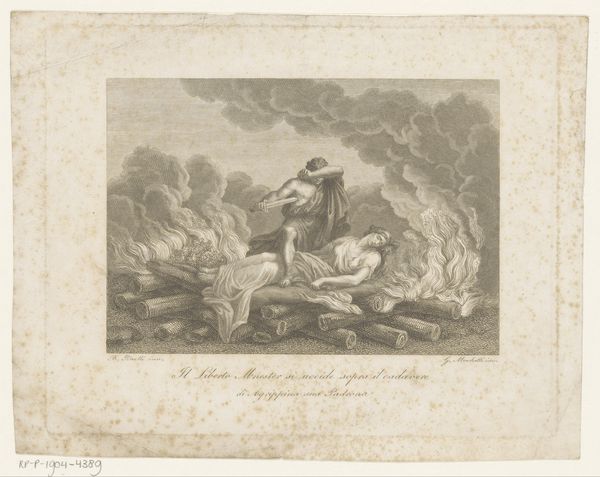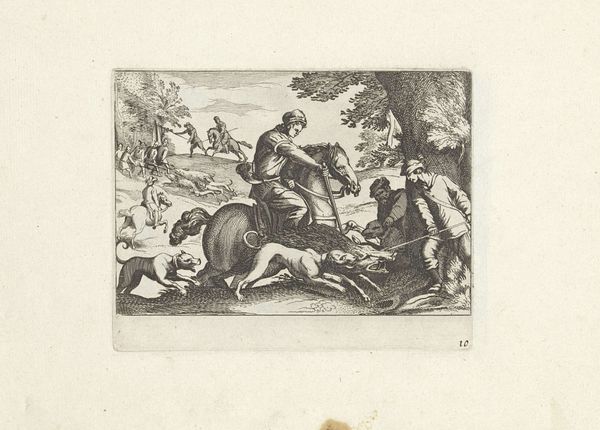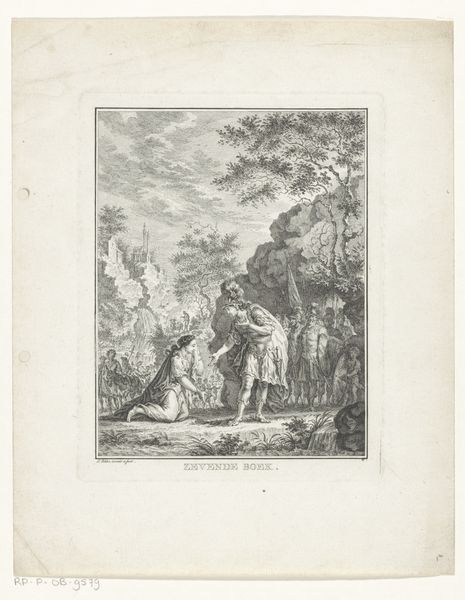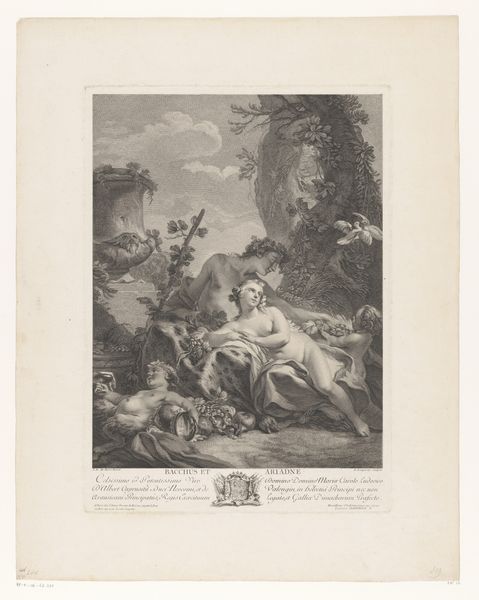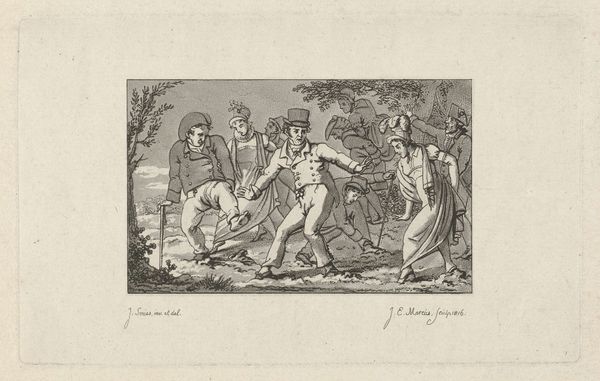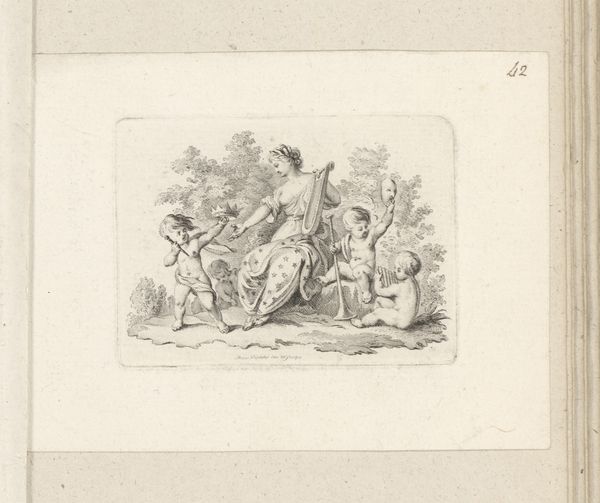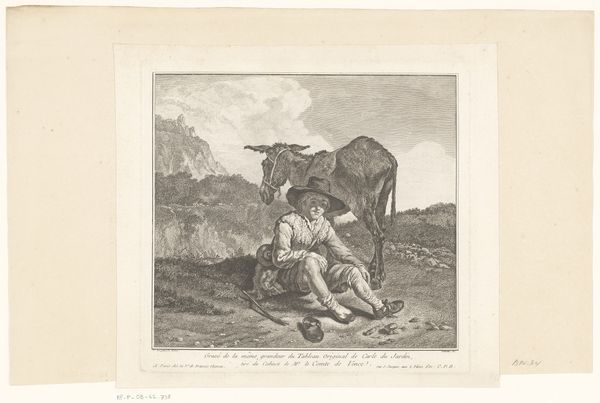
Paraguayaanse jager te paard werpt een lasso naar een jaguar 1822
0:00
0:00
jacquesetiennevictorarago
Rijksmuseum
print, engraving
#
animal
# print
#
old engraving style
#
landscape
#
figuration
#
genre-painting
#
engraving
Dimensions: height 273 mm, width 362 mm
Copyright: Rijks Museum: Open Domain
Editor: Here we have Jacques Etienne Victor Arago's 1822 engraving, "Paraguayan Hunter on Horseback Lassoing a Jaguar," residing here at the Rijksmuseum. I'm immediately struck by the dynamism captured in simple lines – the tension in the hunter’s posture and the jaguar's defense is palpable. What jumps out at you when you look at this piece? Curator: I notice the material conditions represented here. The hunter's poncho, the lasso – these are tools born from a specific socio-economic reality. It's not just about a heroic hunt, but about the labour involved. Think about where Arago, the artist, is coming from - what materials are used to make this print? Where did they come from, and for whom was this print being made? Editor: So, you’re seeing it as more than just a depiction of a hunt? Curator: Precisely. The print medium itself points to wider issues of accessibility and consumption. Engravings like this were often made for broader distribution, making images of exotic locales accessible to a European audience. Consider the relationship: Who is representing who, and for what purpose? What about the use of animals as goods, to be turned into other objects? Editor: That’s a fascinating point. I hadn't considered the print itself as a commodity. It makes me rethink the power dynamics at play. Curator: The details are also crucial. Look closely at the landscape, and the skill with which Arago suggests varying textures with lines. Editor: I see. It’s about the technical process as much as the image portrayed. Thanks, that shifts my perspective significantly. Curator: Art, in its materiality, always carries a history of labor and social relations within it. I hope to look for such details going forward.
Comments
No comments
Be the first to comment and join the conversation on the ultimate creative platform.
